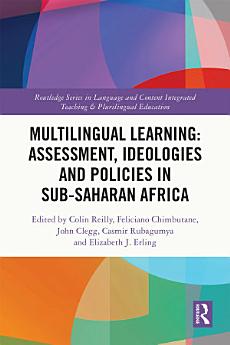Multilingual Learning: Assessment, Ideologies and Policies in Sub-Saharan Africa
આ ઇ-પુસ્તક વિશે
This book offers perspectives to answer this question through focusing on the internal and external pressures which impact the capacity for implementing multilingual strategies in educational contexts at regional, national and community levels. Chapters provide insights into how to better understand and work within these contemporary constraints and challenge dominant monoglossic discourses which inhibit the implementation of multilingual education in SSA. The volume focuses on three main areas which have proven to be stumbling blocks to the effective implementation of multilingual education to date, namely: assessment, ideology and policy.
An insightful collection that will be of great interest to academics, researchers and practitioners in the fields of language education, language-in-education policy and educational assessments in the wide range of multilingual contexts in Africa.
લેખક વિશે
Colin Reilly is a Lecturer in Linguistics at the University of Stirling.
Feliciano Chimbutane is an Associate Professor in Linguistics at Eduardo Mondlane University.
John Clegg is a freelance education consultant based in the UK.
Casmir Rubagumya is a Professor of Language Education at St John’s University of Tanzania.
Elizabeth J. Erling is a Professor of English Language Teaching Research and Methodology at the University of Education Upper Austria and Elise-Richter Senior Postdoctoral Fellow at the University of Vienna.




